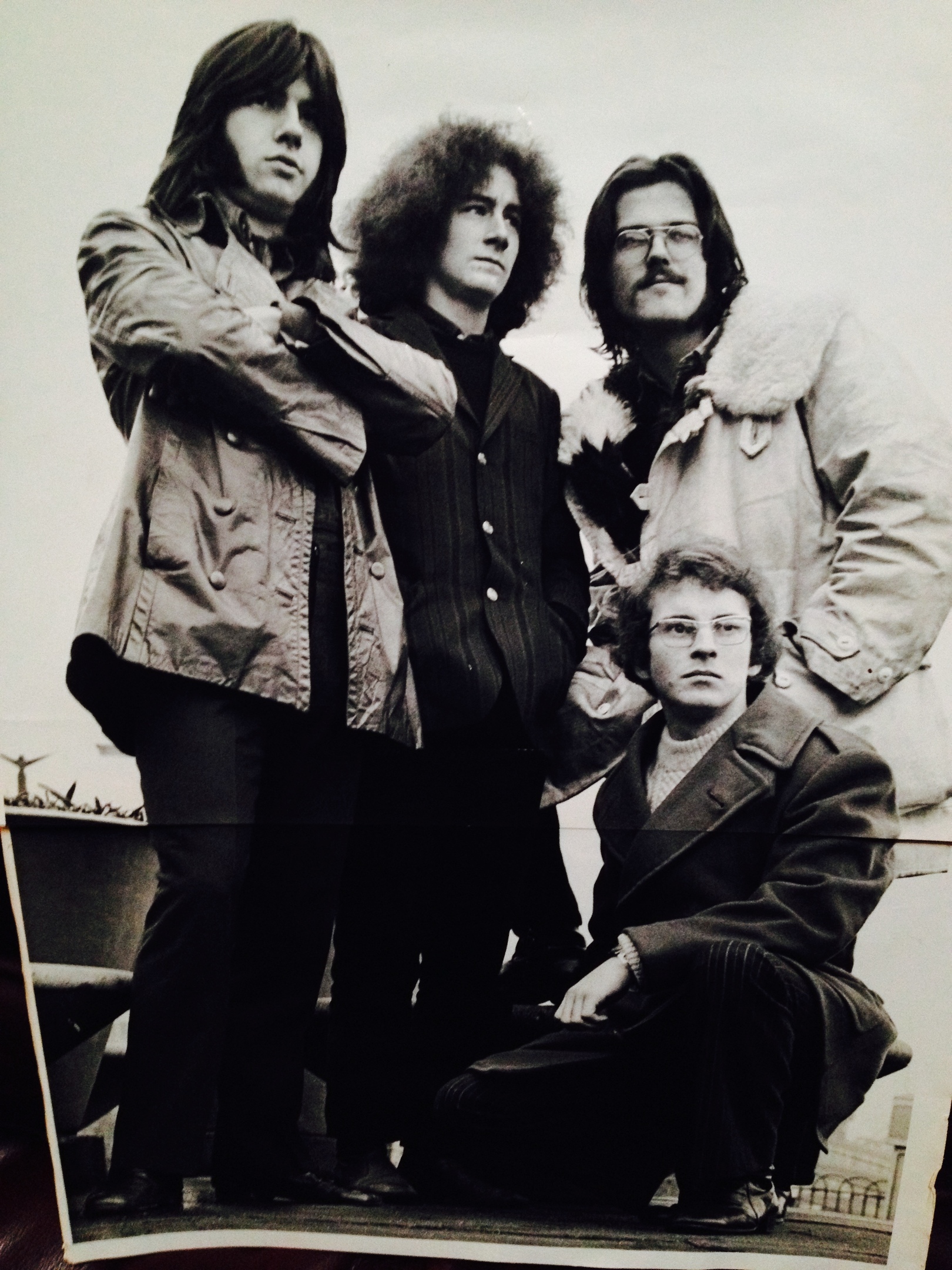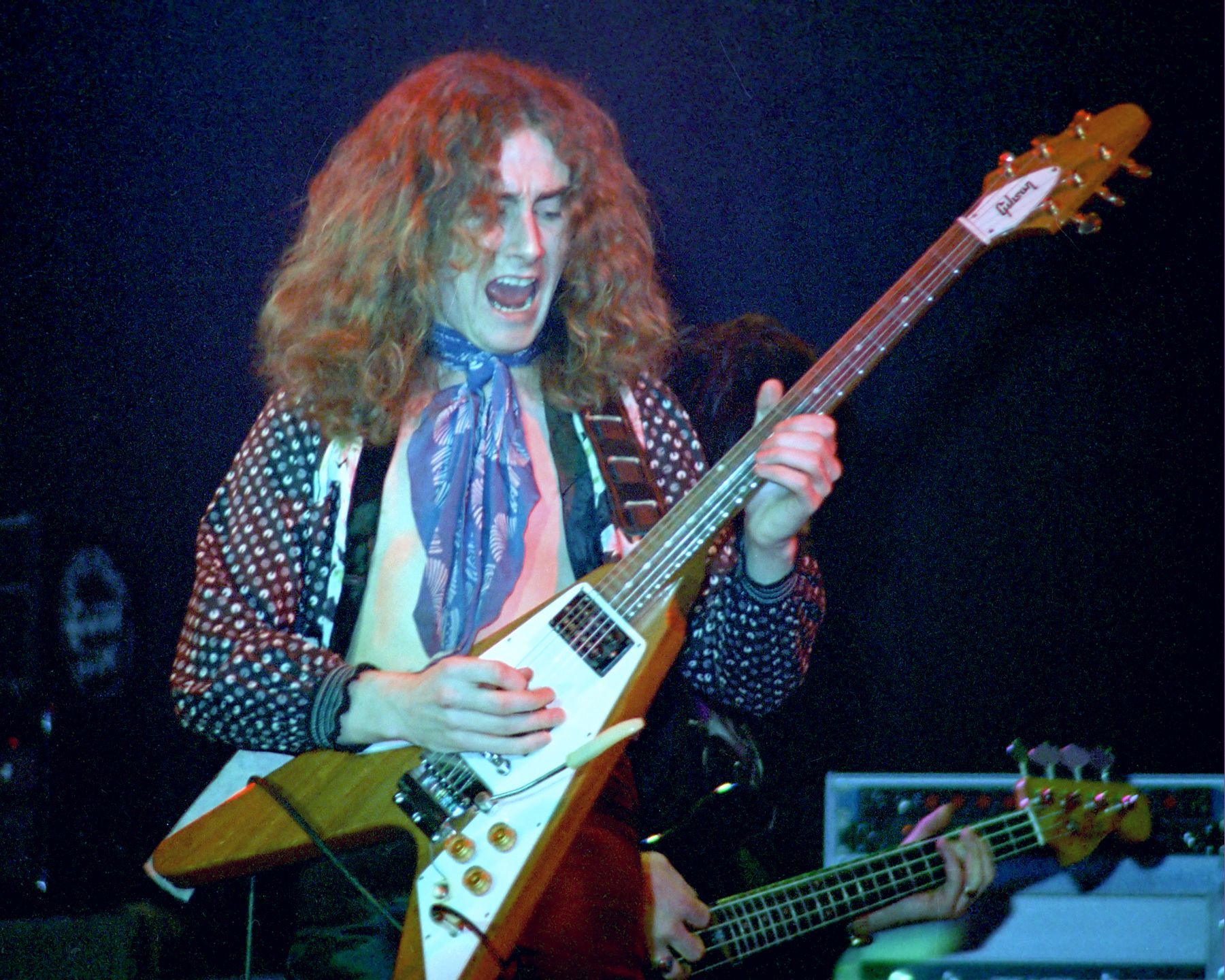The life of a rock’n’roll star was something Aberdeen-born Thin Lizzy and Manfred Mann guitarist Dave Flett had said goodbye to until he discovered that his identity had been stolen. Here, in an exclusive interview, he tells YL why he decided to take back the life he thought he’d left behind.
When someone steals your car or takes money from your account, you are able to comprehend that loss. You can see that your car is no longer sitting in your driveway or your bank balance reads less than it did.
But what if someone steals your identity, an intangible asset that you can’t really believe could ever be taken away from you?
And yet, over the past few years, more and more people are finding themselves the victim of identity theft. The UK’s Fraud Prevention Service reported that identity theft costs the UK more than £3.3billion a year, based on the Annual Fraud Indicator 2013.
It can happen to anyone at any time, as Aberdeen-born musician Dave Flett discovered a few years ago. It was an incident that, originally, he thought was a joke, but he has thought about over the years and he decided to do something about it.
EASY TO WALK AWAY FROM
The 63-year-old, who grew up in the Northfield and Mastrick areas of Aberdeen and now lives in Florida, first got into music at the age of 17 and played in several bands in the city – including Cat Squirrel, Pinto and Once Upon a Band – before moving to London.
It was his links to the Granite City that led him to his first break, after a friend introduced him to Manfred Mann. He later became a guitarist in Mann’s Earth Band and played on two hit albums.
After the band split, Dave continued his musical ascent by joining Thin Lizzy on their tour of Japan. After he wasn’t kept on with the band, Dave decided he would make a change in his career plans. He moved to America and went back to school.
Now, he works as a mental-health therapist and admits that the life of a rock’n’roll star was something that was easy to walk away from.
He said: “For a British rock’n’roll guitar player, Thin Lizzy were the band. There’s never been a band like them. So once I had played with them, that was when I came to America to see what was going on.
“It was easy to walk away from it and try something different, like going back to school, because I felt I’d done everything that I really wanted to do.
“I remember as a kid, when I was about 17, I was in my bedroom in Mastrick and I had my little transistor radio and I heard this song, Whiskey in the Jar, and I remember thinking: Oh, my god, I would love to play like that. And then fast forward 20 years and I was playing in Japan with them. So, mission accomplished. It all took care of itself.”
But now, Dave is back in the musical world and he has released a new album, Flying Blind. The song Stolen Identity was the driving force for the album, coming straight from Dave’s personal experience.
COMPLETELY TAKEN IN
It was a few years ago when Dave first received a message on his answering machine stating that there was a guy in Costa Rica claiming to be the Dave Flett who played with Manfred Mann and Thin Lizzy.
“My first thought was that somebody was playing a joke on me,” he said.
“But I ended up phoning back and said that I was the real Dave Flett and that if this guy had chosen to impersonate me then he really should be pitied, if I’m the best he could come up with. And I just left it at that.
“About four years later, I was going through the internet and I came across this newspaper article about a chap claiming to be me who had lost money in a real-estate scam in Costa Rica and he was a cancer survivor. It just caught my eye, I just thought: What?”
He then sent an e-mail to the Costa Rican newspaper, explained the situation and spoke to the journalist who had written the story, who said he had been “completely taken in” by this guy.
YOU DON’T KNOW WHAT IS COMING NEXT
After convincing them that he was, indeed, the real Dave Flett, the newspaper ran a second story explaining that the first Dave Flett had been an imposter. But the feelings Dave had were far more complicated to sort out.
“I didn’t know how to feel about the whole thing,” he said.
“Was I angry? Well, no, he hadn’t been using my bank accounts or anything, so I felt a bit confused. Just a bit let down; it was so bizarre.
“You don’t know whether to be frightened, because the guy could be stalking you, or this guy could have committed crimes and do you look over your shoulder? Or should you be really angry and want to go and sort him out?
“I think the one thing in the story that is true is that his name is Dave Flett. When I spoke to the editor of the Costa Rican newspaper, he told me that if you come here and get off the plane and they are looking at your passport and they see ‘Dave Flett, of Scotland’, if this guy has broken the law and he’s wanted, you’ll end up immediately in a Costa Rican jail. You won’t get the polite one phone call – they’ll throw away the key. He said: ‘You don’t want to be in a Costa Rican jail.’
“Supposedly, the guy has hightailed it to Canada now, so if I go to Canada I need to check that as well because he might have trouble there, too.
“There’s part of me that thinks: well, I played guitar, this guy must have liked our records. But that’s a very small part. The main thing is, when you really think about it, you just feel a bit uneasy because you don’t know what is coming next.
“And, of course, I’m a small fry. It’s not like I’m Mick Jagger or Keith Richards and I’m being stalked, or like Jay Leno or David Letterman having people climb in their windows. It’s not like that, but it’s still the fact that you could walk in somewhere and somebody could come up and say: ‘Are you Dave Flett?’ and next thing you know, you have a gun at your head or a fist in your face.”
Since the incident, Dave has received loads of correspondence from people who have had dealings with the other Dave Flett. He has even had people e-mailing him in response to the claims that he was a cancer survivor and had lost thousands of dollars in a real-estate deal.
It’s something that, as Dave explains, is not easy to stop once it has happened.
He said: “Your identity is not a tangible asset. If somebody uses your name, that’s it, they’ve used it. If you stop them, there could still be a backlash that could come weeks, months, years later, depending on what they’ve used your name for. It’s a really strange thing, because you really don’t know what’s going on.”
STOLEN IDENTITY
While there was obviously an impact on Dave’s life and an emotional aspect to the whole nightmare, he explained that he never involved the police or looked into a legal angle.
He said that, apart from how he felt, there was nothing actually done.
“It’s not a crime that he’s got the same name as me,” he said.
“The way it impacted my life, there’s nothing really legally that we could do about that. If I started getting letters and calls from credit card companies or collection firms saying: ‘You’ve got to pay us for the Maserati you drove off a cliff,’ then that would be a different story. But actually there’s nothing concrete.
“From a professional standpoint, this guy has definitely got emotional and psychological problems. If you desperately want to be someone else and you do it like this, that involves some characteristics that need medical attention. One of them would be a lack of conscience.”
Dave admits that it is not something that he thinks about often, describing it as “water under the bridge”, but he did deal with it in one way – to write the song Stolen Identity.
He said that he wrote the song to make sure the people who have been loyal to him and appreciated his work over the years knew the truth. And out of the song, a whole album was born.
A collaboration with new faces and some more familiar ones – including Manfred Mann – the 11 tracks have been released as an internet download.
It’s an album that was born out of something that nobody would wish would happen to them, but one that has brought Dave back to something he had long given up.
He said: “I’m just hoping the end result will be that someone will like my CD and the fact that there is an interesting story behind it and maybe one day it will turn out that this chap would have done me a favour.”
To learn more about Dave Flett, visit his website www.daveflett.com



